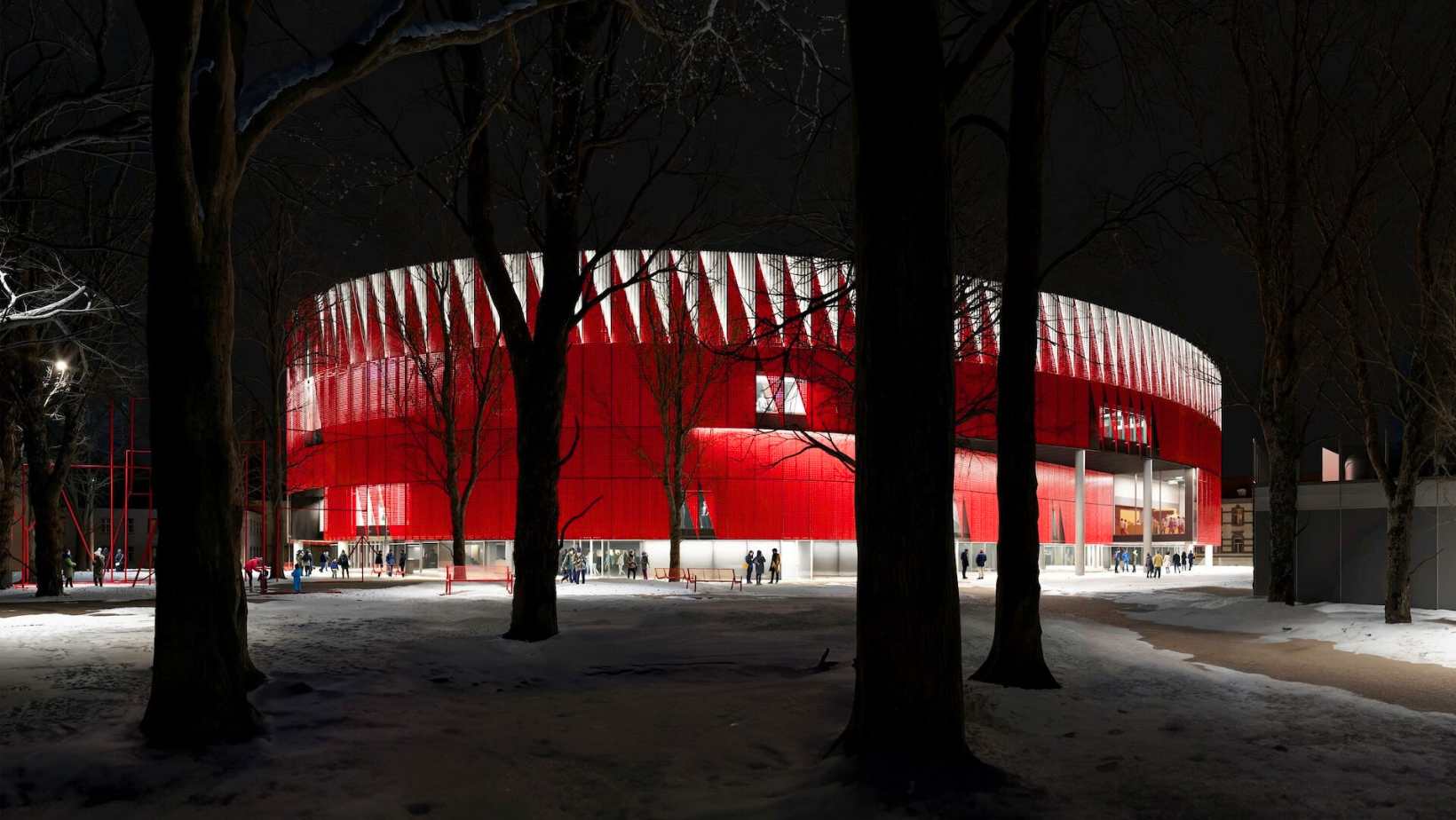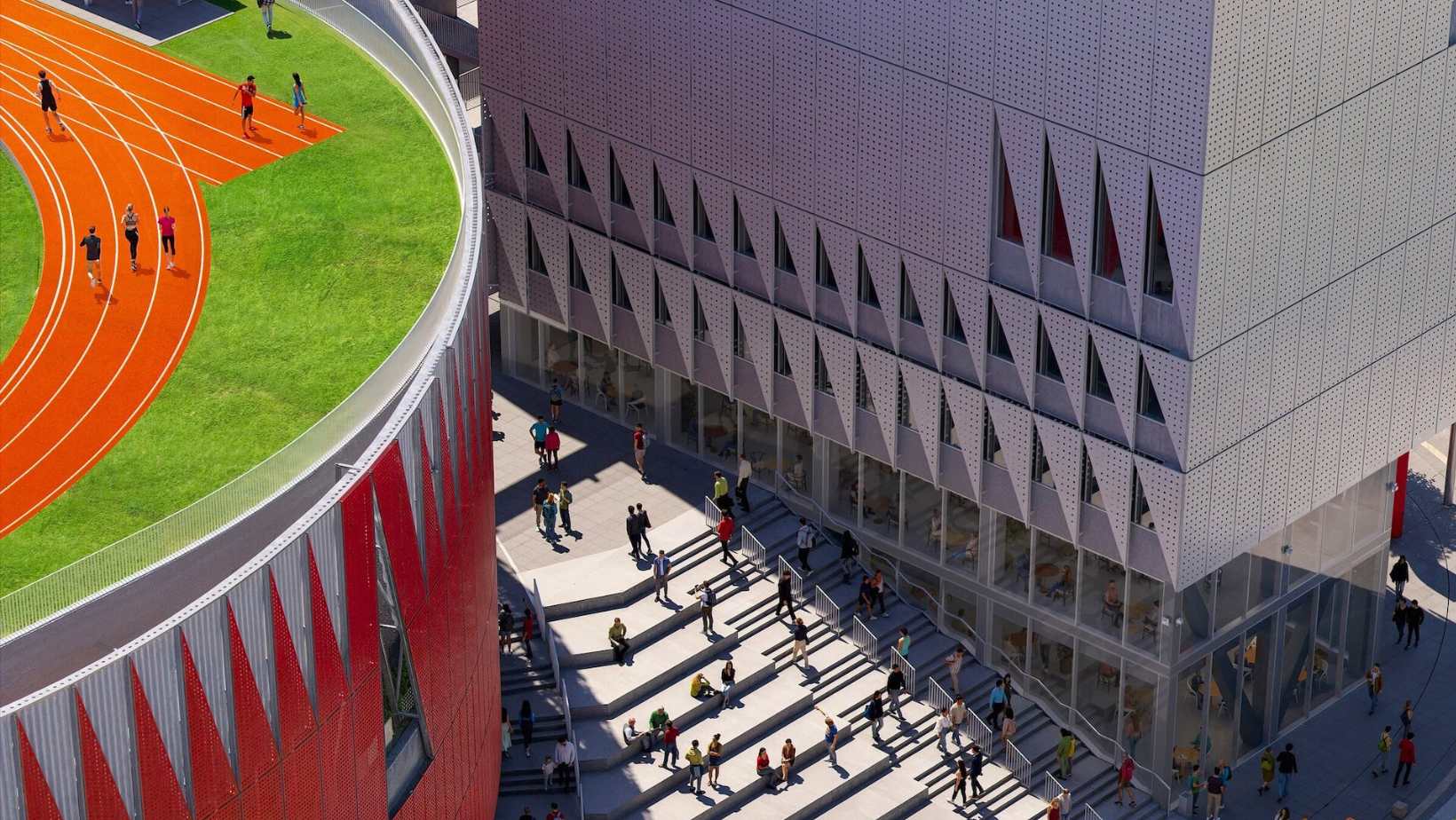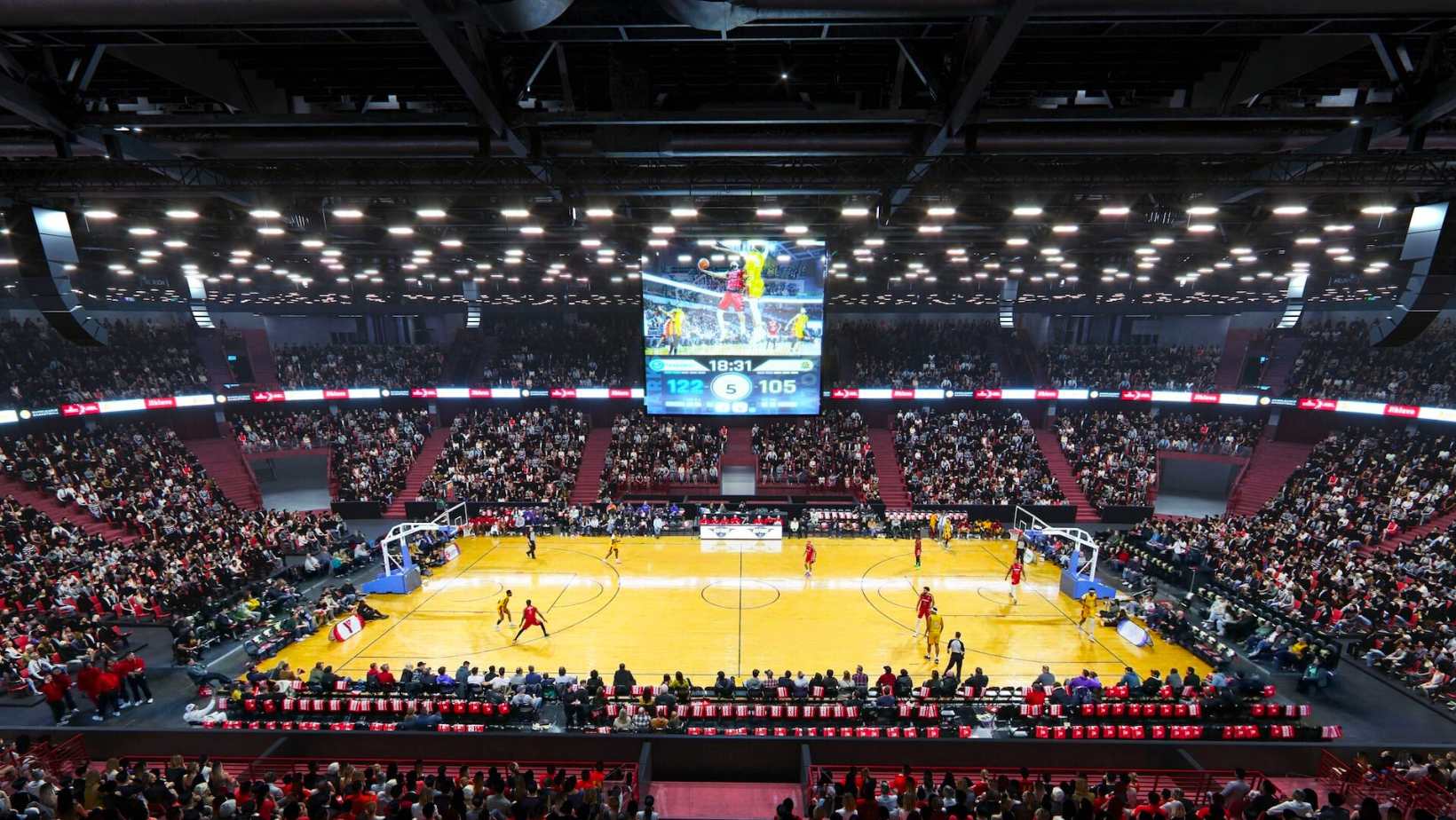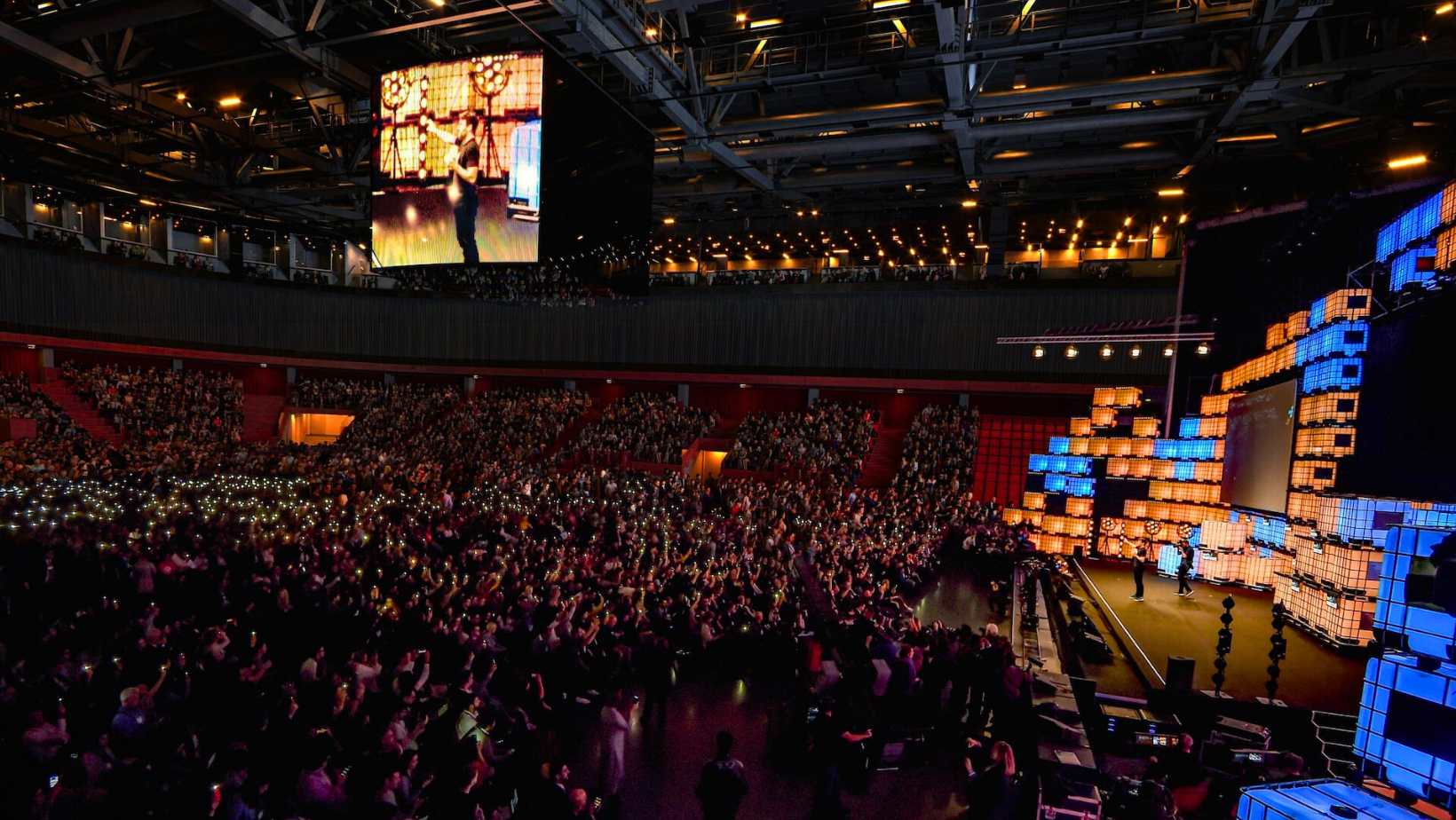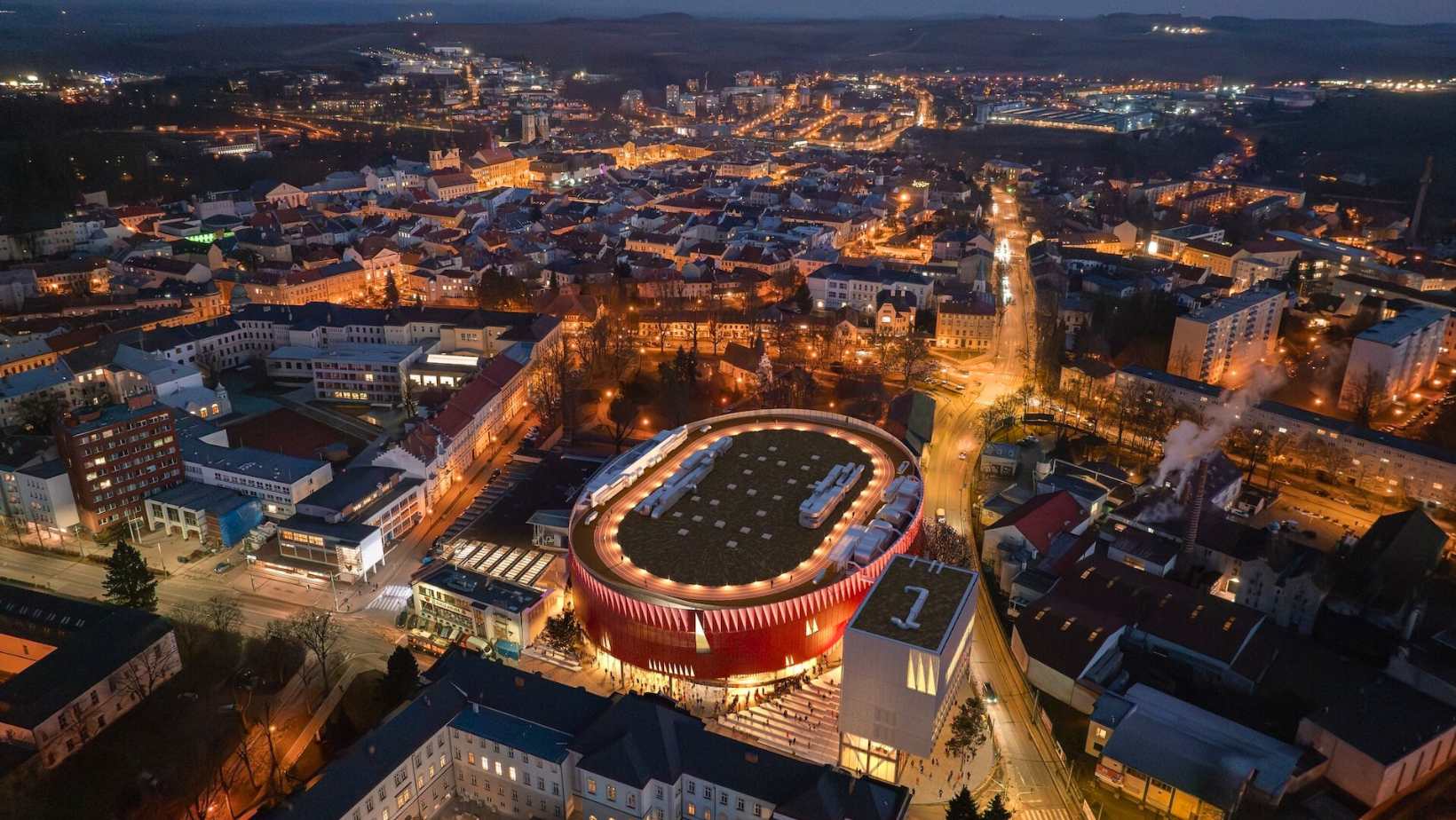Czech President Petr Pavel used an address on VE Day to remember all soldiers who died in the Second World War, including Soviet troops, but insisted that Russia’s history does not excuse its modern-day aggression, comparing its recent behavior to Nazi Germany.
Ahead of a commemorative concert marking the 80th anniversary of the end of the Second World War, Czech President Petr Pavel warned that modern-day Russia is displaying behavior reminiscent of Nazi Germany and called on citizens to vote for parties committed to national and democratic security.
“Unfortunately, today’s Russia behaves in some respects as Nazi Germany once did,” Pavel said on Thursday.
“It does not respect international law, it respects the right of the strongest, it has invaded a sovereign country and has been waging an aggressive war for more than three years,” referencing Russia’s invasion of Ukraine.
Pavel also paid tribute to those who fought against fascism and imperial aggression during the Second World War, including Soviet soldiers, but emphasized that honoring their sacrifice does not extend to defending the present-day Russian regime. “It does not mean respect for today’s Russia at all,” he said.
In a message posted to social media earlier in the day, Pavel reflected on the historical significance of Victory in Europe Day, noting that “World War II marked the lives of millions of people and showed how far hatred and division in society can lead.” He warned of the tendency to forget history’s lessons, urging Czechs to remember those who “fought against oppression and injustice, and who often paid the ultimate price for our freedom.”
Pavel praised Czechia’s unwavering condemnation of Russian aggression since the invasion of Ukraine began, framing it as a moral and strategic obligation rooted in the lessons of the 20th century. “Authoritarians and aggressors must not be appeased,” he said. “We must look at today through this lens.”
As reported by Echo24, the president also warned about domestic threats to democracy, citing rising authoritarian tendencies within Czechia. He criticized efforts to rewrite or distort history, noting that even on Thursday in Prague, rallies were held where “history was distorted.” He was referring to demonstrations by the right-wing SPD and its allies in the Old Town Square in protest at increased defense spending.
Tomio Okamura’s party, which is more aligned with the official Hungarian and Slovak position on the war in Ukraine, called for immediate peace through a deal between Russia and the United States.
At a separate event, anti-government activist Ladislav Vrabel accused Czechia’s establishment politicians and media outlets of inciting anti-Russian sentiment and preparing the country for war.
Pavel concluded his address with a call for civic vigilance. “If we go to the polls this autumn, we need to vote wisely, to vote for politicians and parties that will be serious about security in our country,” he said.
Would you like us to write about your business? Find out more
Defending champion Czech Republic prevailed in overtime to open the men’s ice hockey world championship with a 5-4 victory over Switzerland on Friday in a rematch of last year’s final.
Czechia began their title defense at the 2025 Ice Hockey World Championship with a dramatic 5–4 overtime win against Switzerland. The game, played in Stockholm as part of the Sweden-Denmark co-hosted tournament, was a rollercoaster of goals, missed chances, and special teams play.
Switzerland struck early, with Christian Marti opening the scoring just two minutes into the game. Later in the first period, David Pastrňák had a chance to level the score from a penalty shot but failed to convert. The miss proved costly when Damien Riat doubled the Swiss lead just 32 seconds later.
Czechia responded at the very end of the opening period. With a 5-on-3 power play opportunity, Matěj Stránský found the back of the net just 19 seconds before the buzzer, narrowing the deficit to 2–1.
The second period belonged to Radim Rulík’s squad. In the 27th minute, Filip Zadina tied the game with a confident finish. Just nine minutes later, Filip Pyrochta gave Czechia the lead with a sharp shot from the slot.
To byla jízda na úvod šampionátu, co říkáte? 💯
Navařili 👨🍳 jsme pětku gólových radostí a švýcarského hada setli v prodoužení!
🇨🇭⚔️🇨🇿 4:5p#SUICZE #MensWorlds #narodnitym #ceskyhokej pic.twitter.com/RBGJer6n64
— Český hokej (@czehockey) May 9, 2025
But Switzerland fought back in the third. Sandro Schmid scored a power play goal in the 42nd minute, and Sven Andrighetto added another at even strength in the 49th to make it 4–3 for the Swiss.
As the clock ticked down, Czechia pushed hard and finally capitalized on a late power play. With less than four minutes to go, Lukáš Sedlák tied the game at 4–4, forcing overtime.
The decisive moment came in extra time. Team captain Roman Červenka, who had already assisted twice during the game, delivered the winning goal, clinching a vital extra point in Group B standings.
Czechia’s next challenge comes on Sunday at 20:20, when they face Norway.
Would you like us to write about your business? Find out more
The Prague International Rum Festival returns for its 13th year on Saturday, May 24, 2025, from 12:00 to 21:00 at Vnitroblock in Holešovice.
The event will showcase hundreds of rums from around the world, offering a mix of renowned brands and new releases. Throughout the day, top bartenders will be serving rum cocktails, while the program includes a variety of seminars and workshops suitable for both beginners and rum enthusiasts.
A major highlight of the day will be three exclusive masterclasses, held in collaboration with Barlife magazine and Vít Šafář from Hedonism Spirit. Each masterclass lasts one hour and requires a separate ticket, offering a deeper look into rare rums and professional tasting techniques.
The first masterclass begins at 14:00, featuring a tasting of five cask-strength rums curated by the Belgian company The Nectar, known for its premium whiskies and growing reputation in the rum world. The session is priced at 1,890 CZK, which includes general admission. Participants are asked to arrive by 13:45 in front of Polepšovna Bistro.
At 16:30, the second session will explore four rums by the German brand Wu Dram Clan, recognised for its high-quality spirits. This masterclass is priced at 1,990 CZK, including general admission, and participants should arrive at 16:15 at the same meeting point.

The final session, starting at 19:00, will focus on food pairings, matching premium rums with dishes like jerk pork tacos, shrimp with mango, and flambéed pineapple. Priced at 1,490 CZK, this class is limited to 16 participants, who are expected at 18:45 in front of Polepšovna Bistro.
Guests can enjoy Latin American-inspired food, live Latin music, and professional dance performances. In addition, the festival will feature handmade Colombian jewelry and accessories, along with elegant Stetson straw hats.
Standard admission is available for 390 to 490 CZK, including a free tasting glass. Tickets can be purchased through the GoOut platform. Entry is restricted to visitors aged 18 and over. Minors may enter only if accompanied by an adult.

Would you like us to write about your business? Find out more
A new chapter in Czech sports infrastructure is unfolding in the heart of Jihlava, where a multipurpose arena is nearing completion.
Designed by Chybik + Kristof Architects & Urban Designers, the Horácká Multifunctional Arena is set to become one of the most versatile sports and leisure centers in the country.
Construction began in the autumn of 2023 and will be completed later this year.
With a capacity of 5,650 spectators, the arena is more than just a hockey stadium.
“Located in the heart of Jihlava, this arena reflects a deliberate and forward-thinking decision by the city (Jihlava),” say architects Ondrej Chybik and Michal Kristof. It represents a bold reinvention of urban sports spaces–designed to blend into the city rather than stand apart from it.
At its core, the new complex honors Jihlava’s passion for hockey. As it will be the future home for HC Dukla Jihlava, the city’s legendary club and 12-time Extraliga champions. Since its founding in 1956, Dukla has shaped Czech hockey history and cultivated generations of elite players.
Yet, its vision goes well beyond ice. The arena includes an adaptable ice rink that can host everything from high-level sporting competitions to concerts and exhibitions, as well as an indoor gym and a rooftop running track offering city views.
Chybik + Kristof’s vision prioritizes public engagement, flexibility, and long-term community benefit.
During the planning phase, local children were invited to reimagine and draw the arena through their eyes–a creative initiative to indicate whether the architecture resonates even with society’s youngest members.
The results: a space as iconic and recognizable as it is functional.
Would you like us to write about your business? Find out more
Beer festivals are an excellent opportunity for you to taste authentic Czech beer. It is a tradition that every fairly large brewery has its festival at least once a year.
And what is the program for this year like?
You can expect a lot of special beers, authentic Czech food and musical performances!
Visit, for example, the Bernard Fest 2024 (20–21 June) in Humpolec, or the festival CLOCK/DAY (25-26 July) in the village of Potštejn.
And where can you go if you want to taste the best of various breweries at once?
The Minibrewery Festival (13–14 June) at Prague Castle is one of the highlights of all Czech exhibitions of minibreweries. The top 66 Czech and Moravian minibreweries and three foreign minibreweries take part in it.
On June 20-21, the Beer Festival at Náplavka will feature specialty beers from over 50 small and micro Czech breweries. You can also look forward to gastronomic delicacies and live music.
Admission to the festival and the accompanying cultural program is free, but the condition for beer tasting is the purchase of a 0.3l glass mug. Together with the festival tasting card and pencil, it will cost 100 CZK (70 CZK for seniors). It will be possible to use the same mug on both days of the festival.
Then, Dočesná in Žatec (5–6 September) is an event combining the features of a beer and music festival. The town that gave its name to the highest-quality hop variety has prepared a quality musical program involving the tasting of more than 100 beer types this year.
Would you like us to write about your business? Find out more
Jiří Bartoška (1947–2025), one of the most influential figures in Czech cinema and longtime president of the Karlovy Vary International Film Festival, has died at the age of 78.
Bartoška’s death marks the end of an era for Czech film. As the face of the Karlovy Vary International Film Festival (KVIFF) for nearly three decades, he helped elevate the event into a globally respected celebration of cinema. His presence, charisma, and love for the arts shaped Czech cultural life like few others.
In recent years, he had battled a series of serious health issues. In 2014, he was diagnosed with lymph node cancer, which he managed to overcome. However, the disease returned in 2023, requiring another round of treatment.
He also suffered a bout of appendicitis in 2020, which forced him to leave the filming of A Wish for Santa Claus and undergo emergency surgery. This year, he is believed to have contracted COVID-19 while attending the Czech Lion Awards.
Despite these challenges, Bartoška remained deeply active, regularly appearing at public events and continuing his organizational role at KVIFF. In interviews, he often spoke candidly about his illness:
“It was a completely new situation for me. I’ve never really been ill before. Cancer is serious, but it’s no mystery. The more you dwell on it, the worse it gets. If you ignore it, maybe it gets offended and leaves,” he told Blesk at the time.
Even during chemotherapy, he attended award ceremonies and continued to oversee the festival, refusing to let the illness define him.
Bartoška was known for his lifelong smoking habit, which he eventually replaced with e-cigarettes. “I told myself I’d quit. I’ve smoked enough in my life,” he said in late 2020, marking a rare concession to health concerns.
From Accidental Actor to National Icon
Born on March 24, 1947, in Děčín, Bartoška did not initially plan to pursue acting. After being rejected from art history studies, he worked as an art instructor in Pardubice. On the advice of friends, he applied to the Janáček Academy of Performing Arts (JAMU) in Brno, where he studied alongside future stars like Dagmar Havlová, Bolek Polívka, and Karel Heřmánek.
His early stage career took him from the Husa na provázku Theatre in Brno to the Drama Studio in Ústí nad Labem in 1973. Eventually, he settled in Prague, performing at the Municipal Theatre and then at the legendary Na zábradlí Theatre until the early 1990s.
His stage roles ranged from Hamlet’s King, Ivan in The Brothers Karamazov, to Macbeth, Don Juan, and several guest performances at the National Theatre.
While theatre was his first love, Bartoška gained widespread fame through film. He made his screen debut at 28 and quickly became a household name thanks to his role as the hunter Sokol in the prehistoric film trilogy The Ravens’ Stronghold, On the Big River, and The Call of the Family.
His portrayal of violinist Matěj Minač in All My Loved Ones won him the Czech Lion award. Other standout roles include Cemetery of Foreigners and the acclaimed drama Tiger Theory.
With its new ballet production Sarcasms, the National Theatre offers more than a night at the ballet—it invites audiences to confront the irony, absurdity, and quiet vulnerability of life in the 21st century.
The show brings together three very dance pieces: Andrey Kaydanovskiy’s …And How Is Your Life?, Hans van Manen’s Sarcasmen, and Eyal Dadon’s Katastrof. Together, these works explore the human condition through contrasting aesthetics, but with a shared undercurrent of subtle sarcasm and deep emotional insight.
The evening is a landmark moment for the Czech National Ballet, which not only debuts two world premieres in a single night, but also brings a legendary European piece to Czech audiences for the first time. “Sarcasm is a form of freedom—and dance is an ideal way of expressing it,” says Filip Barankiewicz, Artistic Director of the Czech National Ballet.
“Sarcasms”: A Bold Triple Bill at the National Theatre
The first piece, …And How Is Your Life?, comes from Vienna-based choreographer Andrey Kaydanovskiy. Set to a string score by Milko Lazar, it’s a work about modern overload—a physical reaction to everyday pressure, as Kaydanovskiy describes it. In a world where we’re expected to constantly produce, the question he poses is whether we are even still able to feel.
Kaydanovskiy’s choreography is rich in detail and pattern, with quick gestures that build and collapse into complex rhythms. The set design is austere, the lighting dim. It’s a powerful meditation on what happens when routine starts to replace emotional presence.
From Prokofiev to Prague: Van Manen’s “Sarcasmen”
The second piece is Sarcasmen, a 1981 work by Dutch choreographer Hans van Manen, brought to Prague for the first time. It’s a sharp, minimalistic duet set to piano music by Sergei Prokofiev—light, playful, and often biting.
Van Manen is known for his crystal-clear movement and subtle storytelling. Sarcasmen is no exception. The dancers, one male and one female, engage in a back-and-forth that’s part flirtation, part provocation, and full of detail. Every look and movement is carefully timed, yet never rigid.
The Czech National Ballet invited Rachel Beaujean, a former dancer with the Dutch National Ballet who performed Sarcasmen herself, to help set the piece in Prague. The result is an authentic, beautifully danced interpretation that retains the piece’s original edge.
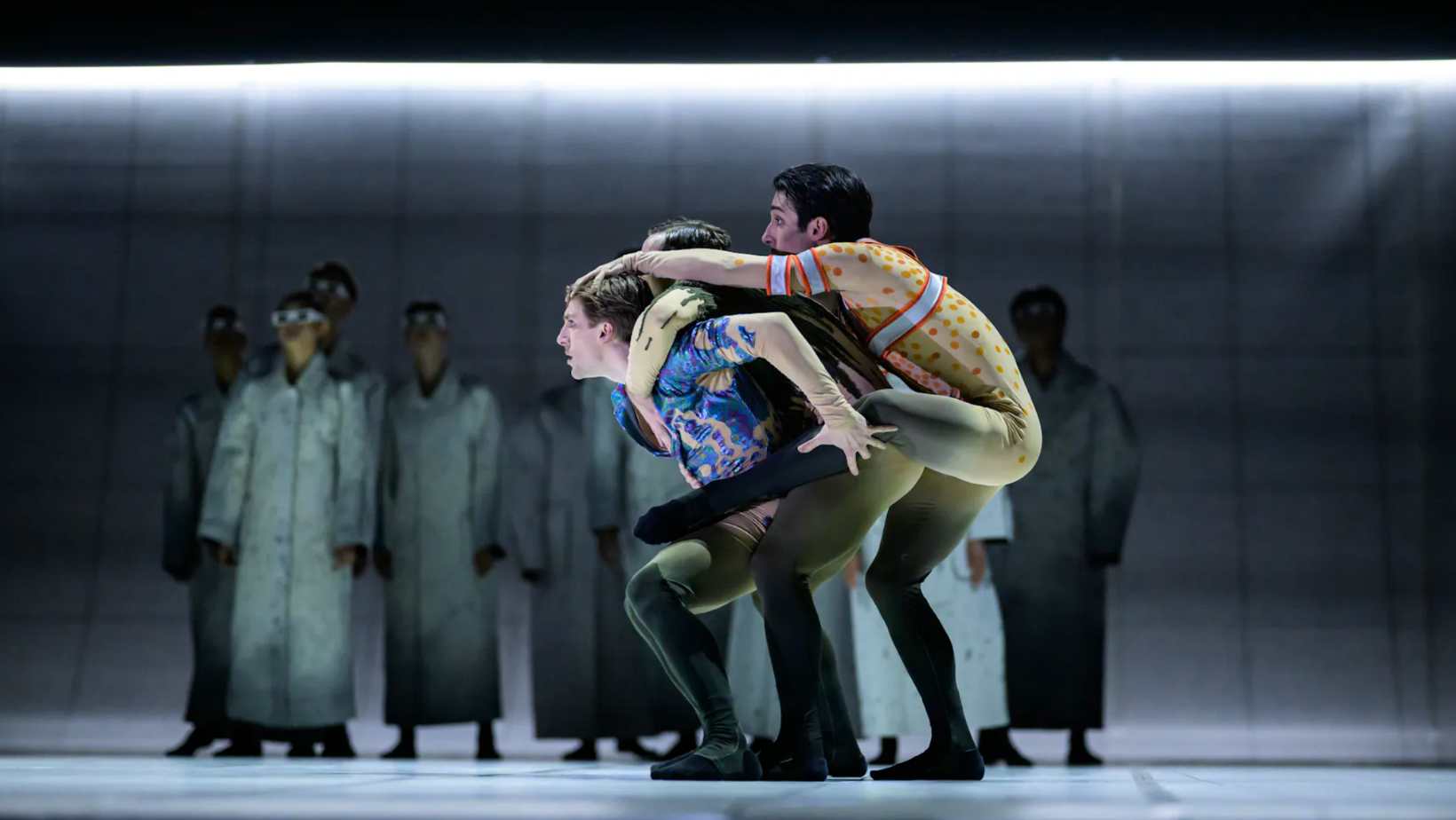
Dadon’s “Katastrof” Closes with Chaos and Power
The final piece, Katastrof, is a world premiere by Israeli choreographer Eyal Dadon. Known for his spontaneous style and theatrical energy, Dadon delivers a fast-paced, unpredictable work that reflects the instability of contemporary life.
In Katastrof, the dancers swing between extremes—chaotic group sections break into stillness, while calm moments suddenly explode into frenzy. The score blends electronic pulses with jarring sounds, building a sense of tension. Dadon’s choreography feels urgent and raw, as if each movement were being invented in the moment.
There’s a sense that things could fall apart at any second—and sometimes, they do. But that’s the point. The piece captures the illusion of control we cling to in everyday life, only to watch it unravel under pressure.
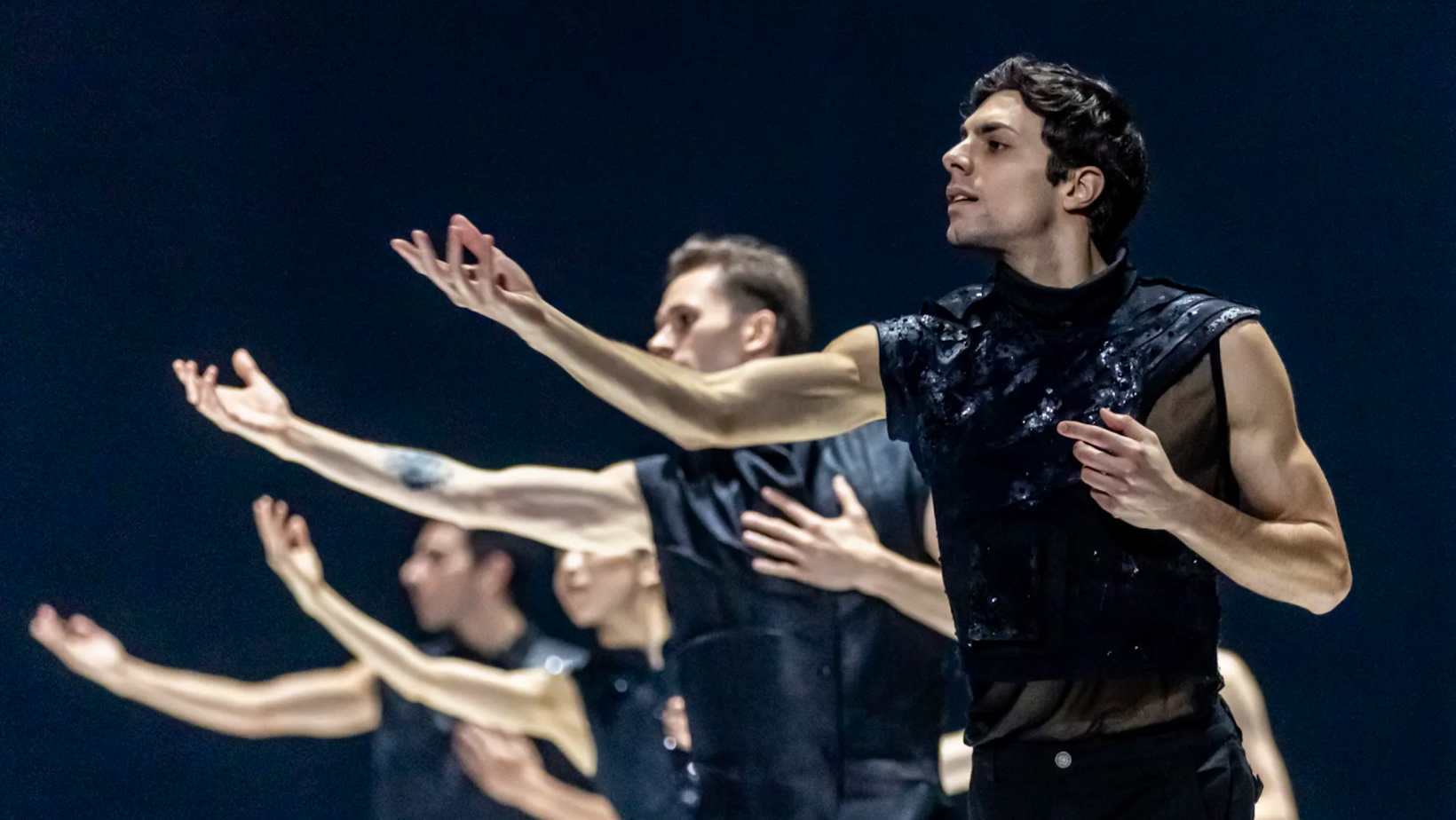
Would you like us to write about your business? Find out more
A new special tram has begun service in Prague to commemorate the 80th anniversary of the Prague Uprising and the end of World War II.
Decorated in the Czech national colors and titled “Prague, the City of Heroes,” the tram was officially unveiled on Tuesday, May 6, in Stromovka Park.
This Škoda 15T tram will operate across the city for the next six months, bringing history to life with visuals that honor the resilience and bravery of Prague’s citizens during the May 1945 uprising against Nazi occupation. The tram bears key dates and symbols of that period, offering a moving tribute to those who resisted.
According to Deputy Mayor Jiří Pospíšil, the initiative serves as a living reminder of how Prague’s history is intertwined with its everyday life. “The Prague Uprising is an extremely important moment in our history. This tram will remind both residents and visitors how essential it is to preserve and pass down these values to future generations,” he said during the launch.
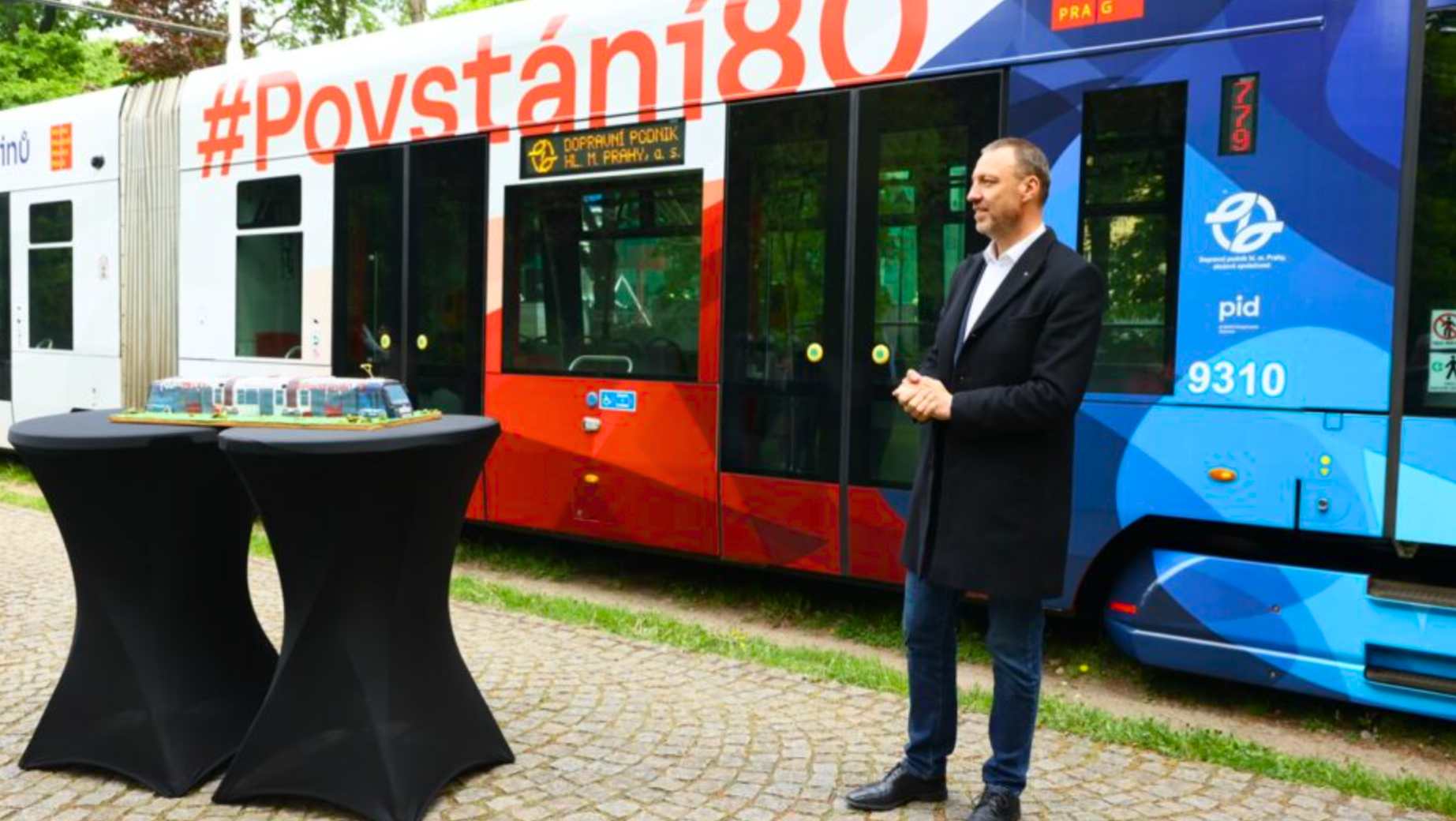
Inside the tram, passengers will find informative panels describing not only the Prague Uprising, but also other crucial events from the final days of World War II in Czech territory.
Eleven themed displays highlight episodes such as the fire at the Old Town Hall, the return of Czechoslovak air squadrons, and the roles played by the Russian Liberation Army (ROA), Soviet forces, and American troops.
In addition to the tram, the city has launched a panel exhibition titled “V as Victory” at Mariánské náměstí in Prague 1. Open to the public until May 30, 2025, the outdoor display explores the liberation of Prague and the war’s closing chapter. Full details are available here
Another exhibition, “Old Town Square in Flames,” is now open at the Museum of Memory of the 20th Century.
Would you like us to write about your business? Find out more
The City of Prague is once again offering free annual public transport passes to long-term blood donors, reaffirming its support for those making quiet but vital contributions to public health.
In 2025, 367 individuals will receive this benefit, which is awarded to those who have donated blood at least 80 times. The city has allocated 1.3 million CZK to fund the program, which has become a yearly tradition.
Each person is granted a full-fare annual travel pass for the Prague Integrated Transport system (PID), typically priced at 3,650 CZK.
The pass is given to those who hold official honors from the Czech Red Cross (ČČK), such as various levels of the Golden Cross or the “Donate Blood – Gift of Life” plaque
This year, 244 donors who have given blood at least 80 times will receive the 3rd Class Gold Cross. Another 82 individuals qualify for the 2nd Class award after 120 donations, and 31 donors will be recognized with the 1st Class honor for 160 donations. In addition, 10 exceptional donors who have each donated 250 times will receive the benefit as holders of the ČČK honorary plaque.
According to the Czech Red Cross, around 220,000 people in the country currently donate blood, with about 30,000 new donors joining each year.
However, medical professionals say at least 300,000 regular donors are needed to maintain a stable national blood supply, along with 5,000 new donors annually to offset losses due to age or illness.
Compared to last year, the number of recipients dropped slightly. In 2024, 372 people were awarded the same benefit, at a total cost of 1,357,800 CZK.
Would you like us to write about your business? Find out more
On Thursday, May 8, Prague will bring its wartime past to life with a large-scale reenactment of the 1945 Prague Uprising.
The event, titled “Barricade”, will take place in the Nusle district, where some of the bloodiest clashes between Prague’s resistance fighters and the occupying Nazi forces took place during the final days of World War II.
Admission is free, and the action will take place directly on the original streets of the uprising: Táborská, Petra Rezka, náměstí Generála Kutlvašra, and Na Květnici.
Around 400 historical reenactors, dressed in period uniforms and armed with authentic weapons, will recreate the scenes of urban warfare that marked the city’s liberation.
The reenactment will feature live battle scenes, projected on large outdoor screens and narrated in real time to provide historical context for the audience.
What sets this event apart is its authenticity: visitors will see original WWII military vehicles and equipment in action, offering a rare connection to the past.
Beyond the battle scenes, the event will include several side programs, such as a retro fashion show, immersing visitors in the cultural atmosphere of 1945 Prague.
The event is part of Czechia’s annual Victory Day commemorations, held on May 8, marking the end of World War II in Europe.
Would you like us to write about your business? Find out more
Roxette’s timeless pop anthems are returning to Prague’s O2 Arena this fall.
On November 6, 2025, founding member Per Gessle will take the stage once again, joined by Swedish pop star Lena Philipsson, whose powerful vocals will breathe new life into Roxette’s greatest songs.
Fans can look forward to “It Must Have Been Love,” “Listen to Your Heart,” “The Look,” and other chart-topping classics that helped define a generation.
The 2025 tour, titled “Roxette in Concert,” marks a revival many thought would never happen. After what were believed to be their final shows in 2016, the band stepped back—especially after the heartbreaking passing of Marie Fredriksson in 2019, who died of cancer at age 61.
Nearly a decade later, Gessle is picking up the torch—not to replace Fredriksson, but to honor her legacy. With Philipsson’s stage charisma and vocal range, the new tour offers a respectful yet energized reinterpretation of Roxette’s catalogue.
The first leg of the tour, which just wrapped up, saw more than 75,000 fans attending across several cities. Audience reactions were ecstatic, with both longtime followers and a new generation of listeners singing along to every word.
“It was more than just a concert,” wrote Music Festivals Australia. “It was a reminder of what live music should be: uplifting, electrifying, and unforgettable.”
The band lineup includes several longtime Roxette collaborators, such as Christoffer Lundquist, Magnus Börjeson, Magnus “Norpan” Eriksson, Dea Norberg, and original Roxette legends Clarence Öfwerman and Jonas Isacsson.
Tickets for the Prague show at O2 Arena are expected to sell out fast. Fans are encouraged to secure their seats early for what promises to be one of the musical highlights of the year.
Would you like us to write about your business? Find out more
On Wednesday, May 8th, commemorate Victory Day (Den vítězství) in Prague by exploring historical sites that are typically inaccessible to the public.
Here are some of the locations opening their doors for free:
Liechtenstein Palace
Residents and visitors to Prague will also be able to see the interiors of the Liechtenstein Palace (Lichtenštejnský palác) on Prague’s Kampa Island, which is usually not accessible to the general public.
Currently, the historic building is used to host state events and to accommodate prominent political figures. During their official visits to the Czech Republic, the palace was home to the Spanish King Juan Carlos and his wife, the British Queen Elizabeth II, and the Emperor of Japan Akihito.
Address: Lichtenštejnský palác, U Sovových mlýnů 506/4 , Prague 1
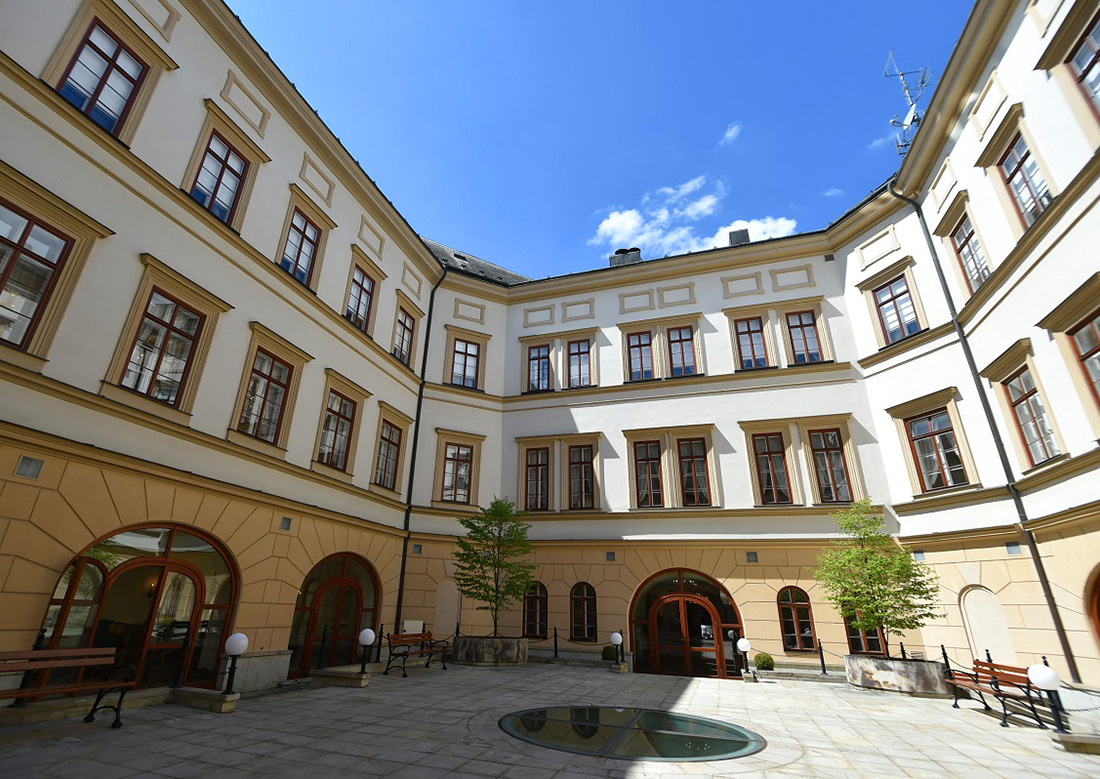
Chamber of Deputies of the Czech Parliament
Take a one-hour tour of the Chamber of Deputies, including the main meeting room, committee conference rooms, and other areas. Opening hours are from 9:00 am to 4:00 pm.
Address: Thunovský palác, Sněmovní 4, Prague 1
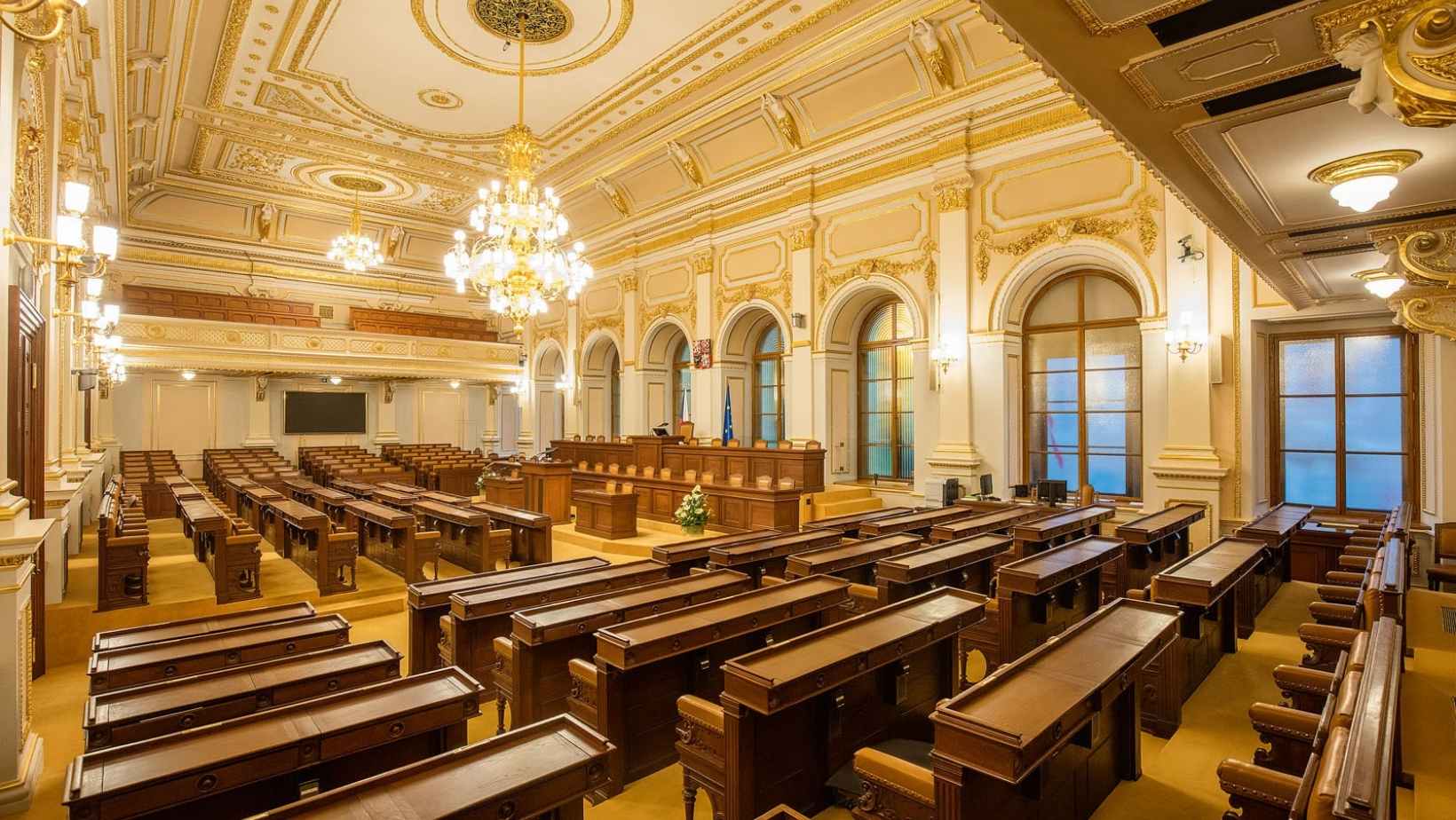
Czech Senate
Explore the Waldstein Palace, the Senate’s main building, and the Kolovrat Palace, where the Czechoslovak government was informed about the signing of the Munich Agreement in 1938. Both locations will be open from 8:00 AM to 5:00 PM (last entry at 4:30 PM). Enjoy free performances by the Swing Session band in the Waldstein Palace garden at 11:00 AM, 1:00 PM, and 3:00 PM.
Addresses: Valdštejnské náměstí 17/4, Malá Strana, Kolovratský palác (Nerudova 193).

Pinkas Synagogue
Residents and visitors to the city are invited to come and quietly honor the memory of all the victims of the terrible war, including the Jews exterminated by the Nazis on Czech soil. The names of almost 80,000 Holocaust victims who lived in the territory of today’s Czech Republic are inscribed on the walls of the synagogue.
Address: Široká 3, Josefov, Prague 1.

